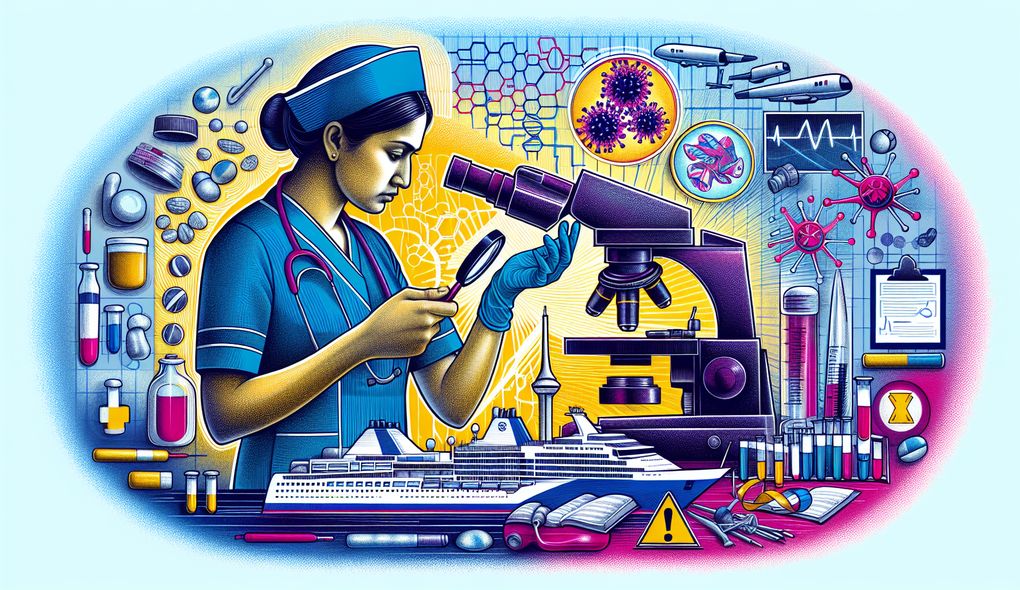Tell me about a time when you had to educate healthcare professionals on the importance of identifying and documenting forensic evidence.
SENIOR LEVEL

Sample answer to the question:
In my previous role as a Forensic Nurse Practitioner, I had to educate healthcare professionals on the importance of identifying and documenting forensic evidence on a regular basis. One particular time that stands out is when I conducted a training session for a group of nurses at a local hospital. I started by explaining the significance of forensic evidence in criminal investigations and how it can help bring justice to victims. I then provided them with practical tips on how to identify and document evidence properly, such as preserving clothing, swabbing for DNA, and taking photographs. I shared real-life case examples to make the training more engaging and relatable. After the session, I also followed up with the nurses individually to address any questions or concerns they had. Overall, the training was well-received, and the nurses felt more confident in their ability to identify and document forensic evidence.
Here is a more solid answer:
In my role as a Forensic Nurse Practitioner, I have extensive experience educating healthcare professionals on the importance of identifying and documenting forensic evidence. One notable instance was when I collaborated with a team of nurses and legal authorities to develop a comprehensive training program. I conducted multiple sessions, ensuring that all healthcare professionals in the organization received the necessary education. During the training, I utilized various communication methods, including presentations, interactive discussions, and hands-on exercises. I emphasized the importance of accurate documentation and shared detailed techniques for evidence collection, such as hair and fiber analysis, wound documentation, and sexual assault kit procedures. Additionally, I provided real-life case examples to highlight the impact of forensic evidence in criminal investigations. The training program received positive feedback, and healthcare professionals reported increased confidence in identifying and documenting forensic evidence.
Why is this a more solid answer?
The solid answer expands on the basic answer by providing more specific details about the candidate's experience educating healthcare professionals. It mentions collaborating with a team, conducting multiple sessions, utilizing various communication methods, and sharing detailed techniques for evidence collection. It also highlights the positive feedback received and the impact of the training program. However, it could further improve by providing specific examples of crisis intervention and trauma-informed care abilities, as well as demonstrating sound judgment under pressure.
An example of a exceptional answer:
Throughout my career as a Forensic Nurse Practitioner, I have consistently demonstrated a strong commitment to educating healthcare professionals on the importance of identifying and documenting forensic evidence. One particular case that showcases my expertise and attention to detail involved a sexual assault victim who arrived at the emergency department. While providing immediate care and support, I recognized the critical need for accurate and timely evidence collection. I quickly assembled a multidisciplinary team, including a forensic pathologist, law enforcement officers, and a victim advocate. Together, we coordinated the examination process, ensuring that every aspect was thoroughly documented and collected. Throughout the examination, I maintained open communication with the victim, explaining each step and addressing her emotional needs. Due to our meticulous approach, vital forensic evidence was obtained, leading to the successful prosecution of the perpetrator. The outcome of this case highlighted the significance of proper forensic evidence identification and documentation to the entire healthcare team.
Why is this an exceptional answer?
The exceptional answer provides a specific and detailed example of the candidate's expertise in identifying and documenting forensic evidence. It demonstrates their ability to work collaboratively with other professionals, provide trauma-informed care, and make sound judgments under pressure. The example also highlights the impact of their actions on the successful prosecution of a perpetrator. Overall, the exceptional answer effectively showcases the candidate's qualifications and experiences while aligning with the job description.
How to prepare for this question:
- Familiarize yourself with current advancements in forensic nursing practices and legal requirements to stay updated and provide accurate information during the interview.
- Reflect on your past experiences educating healthcare professionals on forensic evidence. Think about specific cases or training programs that highlight your expertise and communication skills.
- Prepare examples that demonstrate your ability to collaborate with legal authorities and other healthcare providers in order to emphasize your capability in working as a team.
- Think about instances where you had to handle evidence collection and document it accurately. Be prepared to discuss the techniques you used and any challenges you encountered.
- Consider situations where you provided crisis intervention and trauma-informed care to patients. Discuss how you balanced their emotional needs while prioritizing the collection of forensic evidence.
- Prepare to discuss a specific case or scenario where you had to make a sound judgment under pressure while educating healthcare professionals on the importance of forensic evidence.
What are interviewers evaluating with this question?
- Expertise in clinical forensic medicine practices
- Strong communication skills, both written and verbal
- Capability to work collaboratively with legal authorities and other healthcare providers
- Proficiency in evidence collection and handling
- Crisis intervention and trauma-informed care abilities
- Sound judgment and the ability to make decisions under pressure

